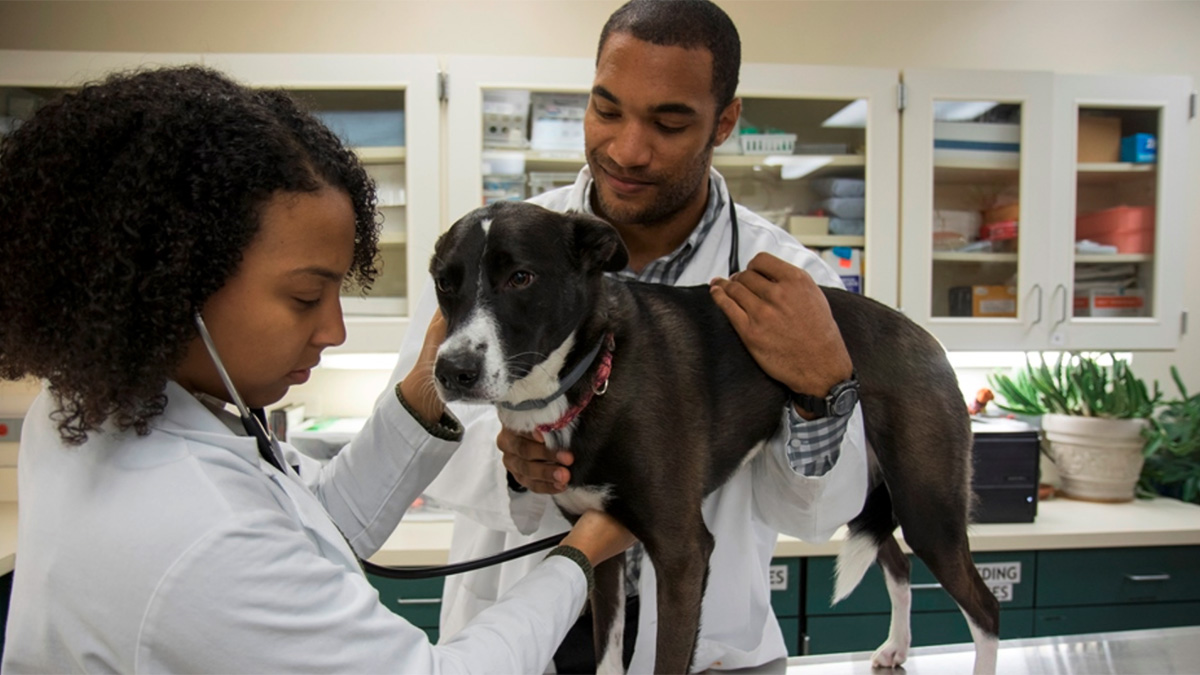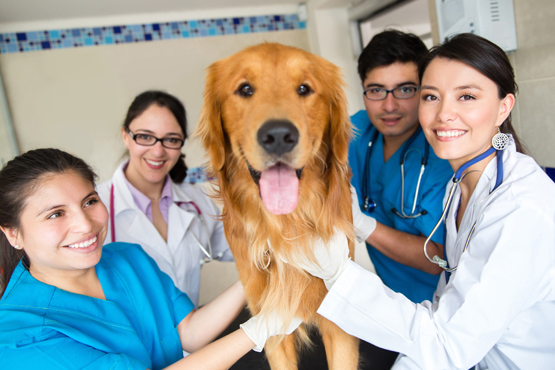How a Veterinary Cancer Specialist is vital in successful tumor care
Comprehending the Function of a Veterinary Oncologist in Your Animal's Cancer Treatment
A veterinary oncologist specializes in identifying and treating cancer in pets. Their know-how is important for developing customized treatment plans that resolve the one-of-a-kind needs of each family pet. Early medical diagnosis can greatly influence results, making their function much more crucial. Comprehending the various treatment options and how these specialists work together with main vets is essential. What approaches do they utilize to boost your pet dog's lifestyle during this challenging time?

What Is a Veterinary Oncologist?
A vet oncologist is a specialized vet that concentrates on treating and diagnosing cancer cells in family pets. These professionals possess innovative training in both vet medication and oncology, allowing them to recognize the intricacies of cancerous diseases in pets. Their know-how allows them to carry out a selection of diagnostic procedures, consisting of imaging techniques and laboratory examinations, to precisely identify various kinds of cancers in family pets.
In addition to medical diagnosis, veterinary oncologists develop tailored therapy plans, which might include surgery, radiation treatment, radiation therapy, or palliative care. They function very closely with animal owners to clarify therapy options and prospective outcomes, ensuring that households make notified decisions regarding their animals' care. Additionally, veterinary oncologists typically work together with various other general specialists and vet professionals, producing a thorough method to animal health and wellness. By concentrating on cancer cells treatment, they play a critical function in boosting the high quality of life for family pets detected with malignancies.
The Importance of Very Early Diagnosis and Therapy
Early medical diagnosis and treatment of cancer cells in pets considerably improve the chances of successful end results and boosted lifestyle. Veterinary oncologists can apply targeted interventions that may slow down illness progression and reduce symptoms when cancer cells is recognized in its early stages. This proactive method permits for far better monitoring of the disease, potentially bring about longer survival times and enhanced convenience for the pet dog.
Additionally, early discovery usually implies that treatment choices might be less invasive and more reliable, decreasing the overall problem on both the animal and its owner. Routine vet check-ups and understanding of refined behavioral adjustments are crucial, as they can promote prompt diagnoses. Owners need to stay watchful and consult their veterinarian at the first sign of problem. Board Certified Veterinary Oncologist. Eventually, a very early medical diagnosis encourages family pet owners to make informed choices about their animal's treatment, significantly influencing the overall journey through cancer cells administration
Treatment Options Provided by Vet Oncologists
When faced with a cancer medical diagnosis, family pet owners can explore a range of therapy alternatives given by veterinary oncologists that are customized to the particular demands of their animals. These professionals commonly provide a combination of surgical procedure, radiation treatment, radiation treatment, and immunotherapy. Surgical treatment might intend to remove lumps or affected cells, while chemotherapy utilizes medicines to eliminate and target cancer cells, commonly administered in cycles.
Radiation treatment concentrates on using high-energy rays to diminish growths and alleviate discomfort. Immunotherapy, a much more recent development, utilizes the animal's body immune system to deal with cancer cells more efficiently. Additional encouraging therapies, such as discomfort management, nutritional assistance, and palliative treatment, are additionally necessary elements of a complete treatment plan. By examining each situation independently, vet oncologists ensure that the picked treatment straightens with the animal's general health and cancer kind, making best use of the chances of a positive end result.
The Collaborative Approach: Functioning With Your Key Veterinarian
Cooperation in between vet oncologists and key vets is important for supplying comprehensive treatment to pet dogs identified with cancer cells. This partnership guarantees a detailed approach to therapy, integrating the specialized understanding of oncologists with the continuous care given by main veterinarians. With each other, they assess the family pet's health and wellness, establish individualized treatment strategies, and monitor the family pet's development throughout the cancer journey.
Primary veterinarians usually work as the initial point of get in touch with, recognizing possible indications of cancer cells and referring individuals to oncologists for specialized diagnostics and treatment alternatives. Complying with the oncologist's suggestions, the key vet plays an essential duty in managing the family pet's total health, including discomfort monitoring and encouraging treatment.
Reliable communication between these specialists cultivates a unified approach, enabling timely treatments and adjustments to therapy as required. This collective method eventually boosts the high quality of care and assistance for pet dogs and their proprietors during a challenging time.


Supporting Your Family Pet Through Cancer Care
Supporting a pet through cancer treatment needs an extensive understanding of the emotional and physical challenges encountered by both the animal and its proprietor. Caretakers must listen to the pet dog's transforming requirements, which may include handling pain, changing diets, and monitoring side results from treatments. Giving a comfy, stress-free environment is vital for the pet's well-being.
Emotional assistance is similarly vital; owners need to seek to stay positive and engaged while recognizing their own sensations of stress and anxiety and despair. Developing an assistance network, consisting of veterinarians, household, and friends, can ease some concerns.
Furthermore, pet owners should inform themselves about the certain kind of cancer cells and therapy alternatives offered, cultivating educated discussions with vet oncologists. Inevitably, a thoughtful strategy, combined with positive treatment and support, can improve the pet's lifestyle during this tough trip.
Often Asked Concerns
Exactly how Do I Pick the Right Veterinary Oncologist for My Pet dog?
Selecting the appropriate vet oncologist entails investigating qualifications, seeking suggestions, examining experience with details cancers cells, assessing interaction designs, and going to clinics to guarantee a comfy setting for both the animal and owner during therapy.
What Should I Expect Throughout the First Appointment?
During the very first visit, the pet dog owner can anticipate a detailed evaluation, discussion of medical history, diagnostic examinations, and a treatment plan overview. The veterinarian will address problems and supply assistance for continuous care.
Are There Any Type Of Costs Related To a Vet Oncologist's Services?
Costs connected with a vet oncologist's services can differ considerably based upon area, treatment intricacy, and required diagnostics. Veterinary Oncology Services. Pet dog proprietors ought to anticipate costs for assessments, tests, and possible ongoing therapy strategies tailored to their animals' needs

Can My Pet Still Receive Routine Veterinary Care While Seeing an Oncologist?
Family pets can obtain regular veterinary treatment while seeing an oncologist. Working with treatments warranties extensive health monitoring. Routine examinations enhance specialized cancer cells treatment, allowing for holistic monitoring of the pet's overall Veterinary Oncology Services wellness and attending to other wellness issues.
What Resources Are Readily Available for Animal Owners Throughout Their Animal's Cancer cells Trip?
Different resources are readily available for family pet proprietors steering their animal's cancer cells trip, including support system, online discussion forums, instructional sites, and financial aid programs, all focused on providing support, psychological assistance, and sensible details throughout this tough time.
A vet oncologist is a specific veterinarian who focuses on identifying and treating cancer in animals. They work carefully with pet dog owners to clarify therapy choices and potential outcomes, making certain that families make educated choices about their pets' treatment. When faced with a cancer cells diagnosis, pet proprietors can check out a variety of treatment choices supplied by veterinary oncologists that are customized to the certain needs of their animals. Cooperation in between primary veterinarians and veterinary oncologists is vital for supplying extensive care to animals detected with cancer cells. In addition, pet dog proprietors ought to inform themselves about the certain kind of cancer and treatment choices available, fostering notified conversations with vet oncologists.